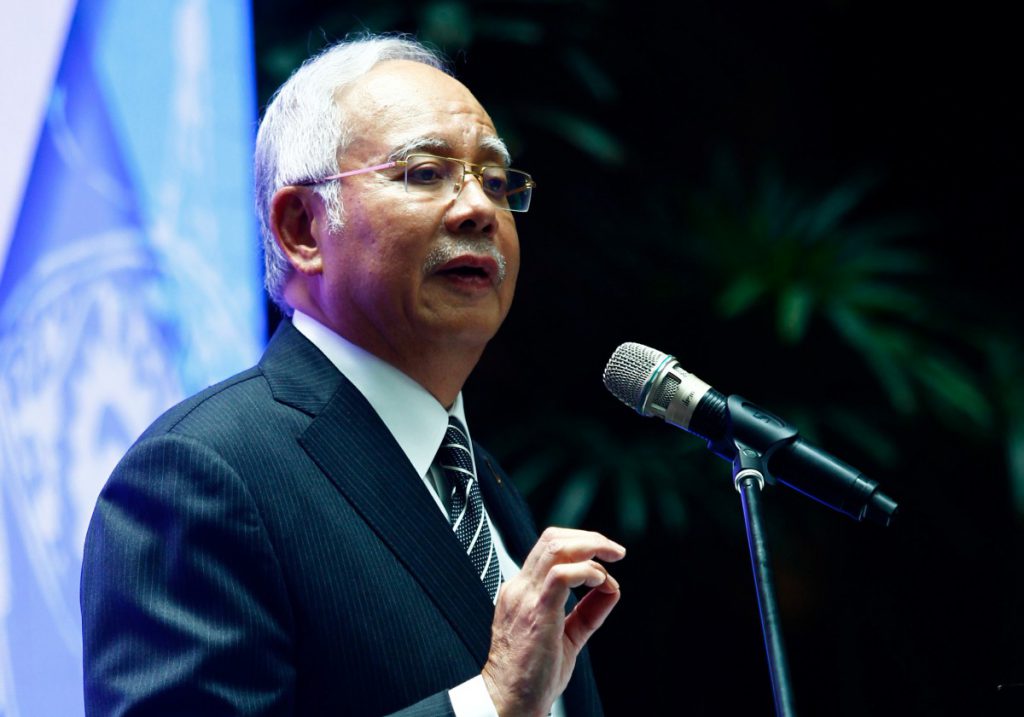
(File) Malaysia believes a blanket ban on digital currencies would curb innovation. Souce: Shutterstock
What’s keeping Malaysia’s tech ecosystem on track?
ON Thursday, Malaysia’s Prime Minister Najib Razak chaired the country’s 29th Multimedia Super Corridor (MSC) Implementation Council Meeting in which he unveiled a “to-do list” to bolster implementation of the nation’s digital initiatives and economy.
In keeping up with global shifts to cloud tech, Najib announced the government’s “Cloud First” strategy as the latest addition to the national agenda.
Najib said the use of cloud tech was pivotal to an organisation’s digital transformation, especially since the public sector will be the starting point for the strategy, the New Straits Times reported.
“Cloud adoption will enable the government to rapidly deliver innovative public sector services to the ‘rakyat’ (people) without incurring high levels of capital expenditure to invest in IT infrastructures such as data centres, servers and storage.
“This enables the government to allocate resources for more impactful programmes for the rakyat. With this strategy in place, there is no doubt the government is taking the lead in embracing digital transformation.”
Najib said the government could facilitate cloud adoption by the private sector. The country is also looking to develop its own National Artificial Intelligence (AI) Framework, an extension of National Big Data Analytics Framework developed by Malaysia Digital Economy Corporation (Mdec).

Najib says Malaysia’s robust infrastructure and reduced cost of doing business are conducive to support and encourage the growth of start-ups. Source: Reuters
“In a hyper-connected world, it is becoming abundantly clear that AI is the defining force of the fourth industrial revolution,” Najib said.
“AI could well be a game-changer in improving the lives of Malaysians.”
In March, the country launched the Digital Free Trade Zone (DFTZ) initiative which consisted physical and virtual zones for local small-medium enterprises to gain more access to global markets by lowering trade barriers.
The DFTZ is seeing heavy involvement with Chinese e-commerce giants AliBaba which is taking part in the development of the e-fulfilment hub, a logistics hub near the Kuala Lumpur International Airport (KLIA) that functions as a centralised customs clearance, warehousing and fulfilment facility for Malaysia and the region, to speed up clearance for imports and exports.
Regional hub for start-ups
According to Digital News Asia, the announcement of leading global venture builders making a presence in Malaysia reaffirms the country’s position as a regional hub tech startups.
Swiss-headquartered company builder Mountain Partners on Wednesday announced the setting-up of their Southeast Asia operations hub in Malaysia, helping more than 15 of their global portfolio companies expand in the country, and creating more than 400 job opportunities, including more than 50 top C-suite talent roles.
Mountain Partners also announced a US$100 million fund to invest in tech startups from Malaysia and neighbouring countries.
“Malaysia has the right ecosystem for global tech start-ups to set-up and grow in this region. Located at the heart of Asean, Malaysia is the gateway for tech start-ups to expand their reach to the Southeast Asia market,” Najib noted after the meeting.
He said the country’s robust infrastructure and reduced cost of doing business were conducive to support and encourage the growth of start-ups.
“While Malaysia is set to become a regional hub for tech start-ups, what this really means is more high-skilled jobs will be created through this initiative, thus giving Malaysians more opportunities – economically and socially.”
READ MORE
- Strategies for Democratizing GenAI
- The criticality of endpoint management in cybersecurity and operations
- Ethical AI: The renewed importance of safeguarding data and customer privacy in Generative AI applications
- How Japan balances AI-driven opportunities with cybersecurity needs
- Deploying SASE: Benchmarking your approach




